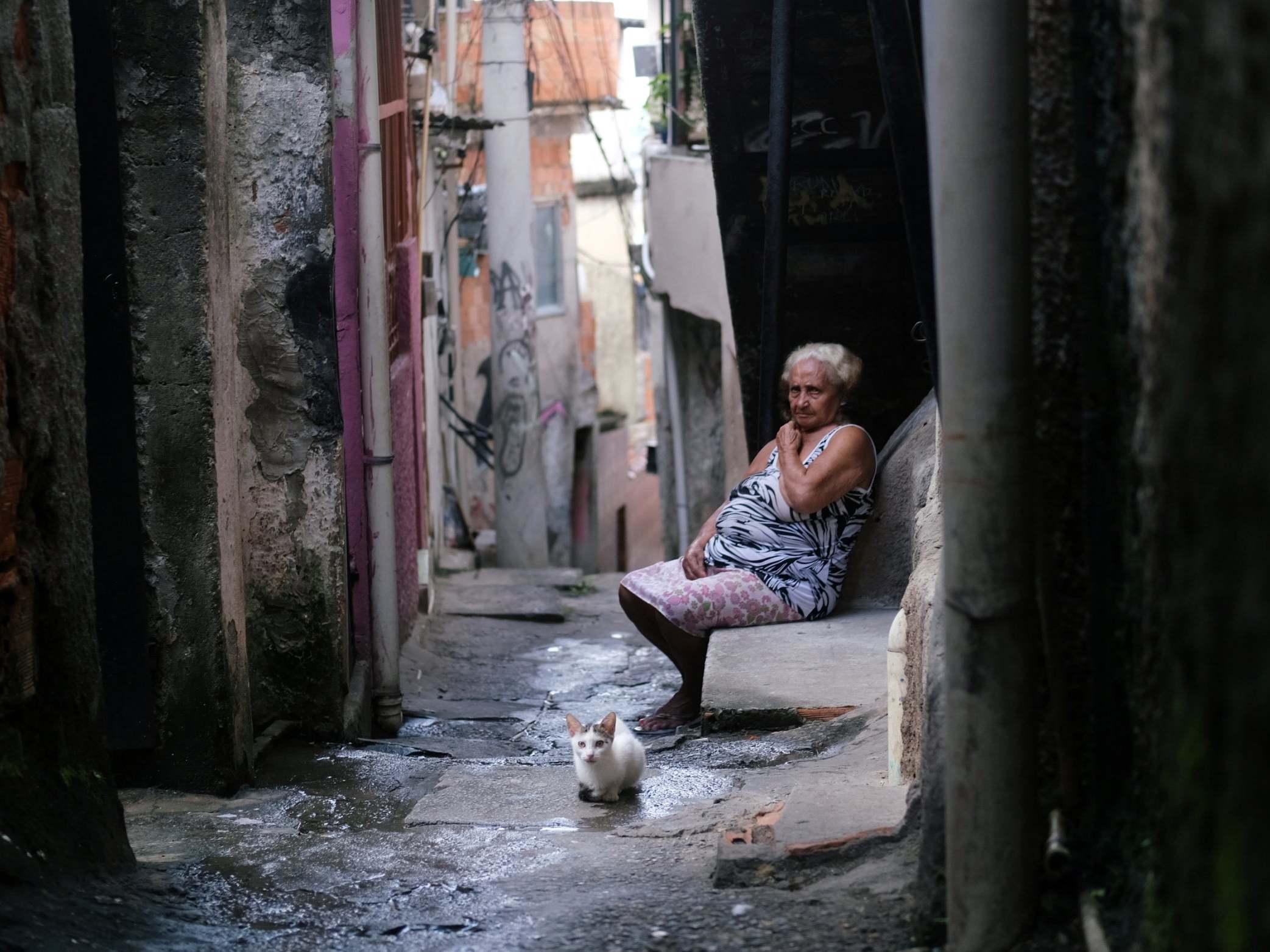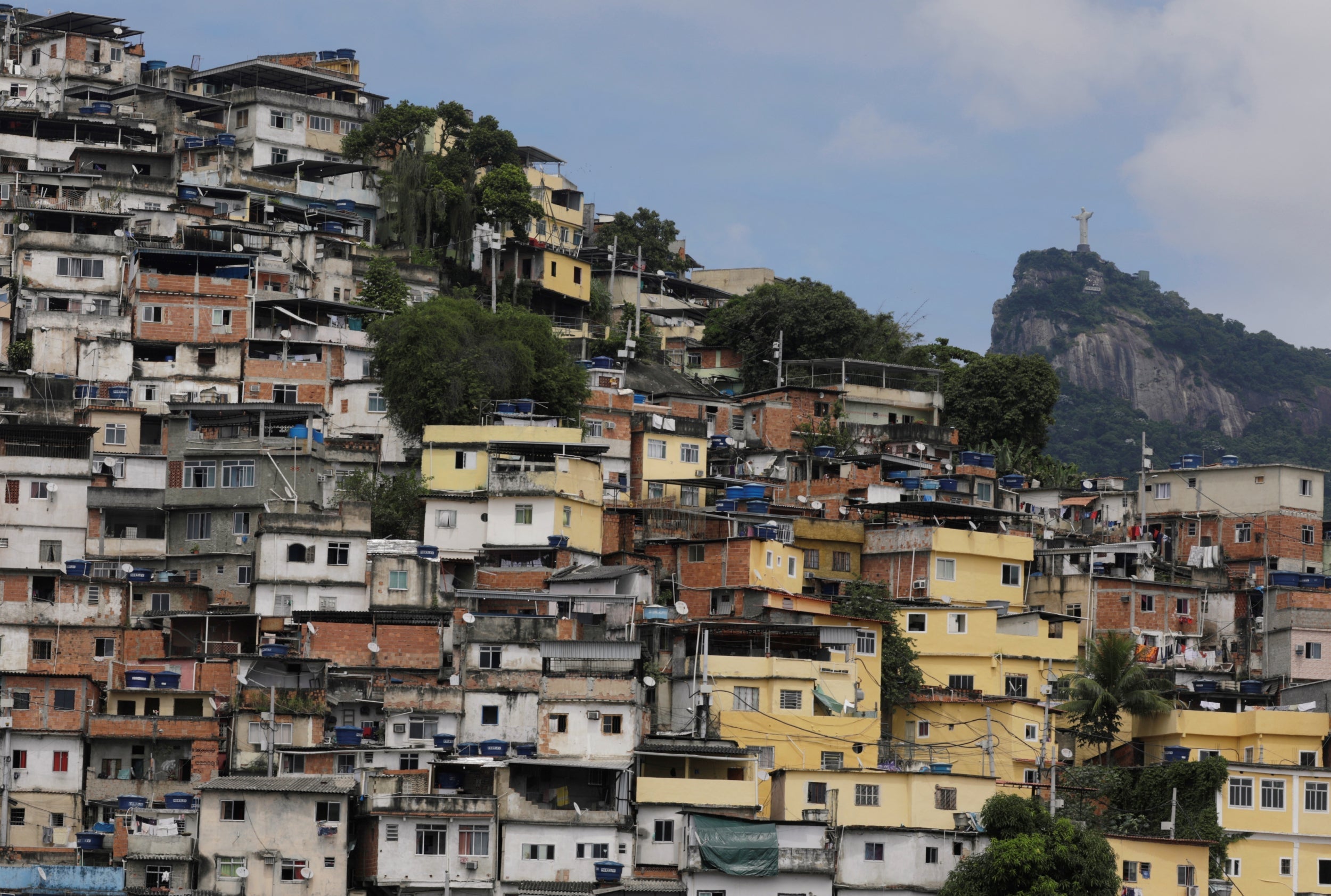How coronavirus could spread like wildfire in Brazil’s favelas
Many simply cannot afford to stay at home, Ignacio Amigo reports from Manuas, Brazil

Your support helps us to tell the story
From reproductive rights to climate change to Big Tech, The Independent is on the ground when the story is developing. Whether it's investigating the financials of Elon Musk's pro-Trump PAC or producing our latest documentary, 'The A Word', which shines a light on the American women fighting for reproductive rights, we know how important it is to parse out the facts from the messaging.
At such a critical moment in US history, we need reporters on the ground. Your donation allows us to keep sending journalists to speak to both sides of the story.
The Independent is trusted by Americans across the entire political spectrum. And unlike many other quality news outlets, we choose not to lock Americans out of our reporting and analysis with paywalls. We believe quality journalism should be available to everyone, paid for by those who can afford it.
Your support makes all the difference.In the middle-class and high-end neighbourhoods of Brazil, a quietness hangs over the empty streets as people stay at home and businesses close their doors, but down in the favelas, life continues its frantic rhythm.
With more than 46,348 official cases across the country and 2,934 deaths, Brazil is currently the epicentre of the Covid-19 epidemic in South America.
“[People in the favelas] don’t think that coronavirus is something serious,” says Rene Silva, director of Voz das Comunidades, a newspaper made for and by people from the favelas of Rio de Janeiro. “They think this is a disease for rich people, that is something from abroad that won’t affect them.”
Rene says that in the Complexo do Alemao, the favela where he lives, streets are crowded and children continue to play football.
“Bars are open, parties take place, church services haven’t stopped.”
It’s more than just a lack of awareness – those in poorer areas of Brazil simply cannot afford to stay at home.

More than 40 per cent of the employed population in Brazil are in the informal economy, and according to a recent survey, 72 per cent of residents in favelas do not have enough money to last them beyond the week.
It’s a crowded set-up in Elice Natalia Botelho’s home. She lives with her brother, her brother’s wife and their eight-year old daughter in Ouro Verde, a low-income neighbourhood in the periphery of Campinas, a city in the state of Sao Paulo.
Although Elice is able to self-quarantine, her brother and sister-in-law work for a company that supplies stock to supermarkets and continues operating.
“Every day they come home saying that supermarkets are crowded, that there’s no social distancing between people, and products aren’t sanitised,” she laments.
In her view, public authorities have not yet understood what the disease means for people in peripheries, many of which lack basic amenities such as electricity, running water and sewerage.
“The main problem is that people live in overcrowded houses,” says Jair Ferreira, an epidemiologist at the Federal University of Rio Grande do Sul. “[In these conditions] it’s much easier to have transmission between family members.”
Meilene Silva Figueira, a mother of six from Jardim Jaguaribe, a low-income neighbourhood in the outskirts of Sao Paulo, says her family is already feeling the impact of the economic crisis. Her husband, who works as a bricklayer, is struggling to survive on temporary stints after larger construction works were put on pause.
“His clients are scared of the virus, but also scared of not having conditions themselves to pay for their ongoing works,” she says.
For the moment, only a few isolated cases have been reported in favelas but with little in the way of testing, real numbers are expected to be far higher.
“For now, we can only speculate,” says Expedito Luna, a researcher at the Tropical Medicine Institute of the University of Sao Paulo. “The data being released is not disaggregated [broken down into categories, such as age or city] and there are also big limitations because of the lack of diagnostic tests.”
Brazil is currently only testing the most severe cases. A preliminary study by the London School of Hygiene and Tropical Medicine suggests that in Brazil the real number of people infected could be around 10 times higher than reported.
The Brazilian Congress recently passed a subsidy of R$600 (£90) per month for three months for informal workers. The subsidy, which people will start receiving this week, could play a crucial role if the situation worsens and cities are forced to impose more strict lockdowns.
“I believe this is a very important step, but it is worth remembering that this was achieved with a lot of struggle by civil society and some left-wing party politicians,” says Raull Santiago, a journalist from Complexo do Alemao who is also the founder of a social organisation called Papo Reto. “The federal government was reluctant to approve this measure and initially wanted to offer only R$200. So this emergency aid is very important and it should have been approved much earlier. It took too long.
“There is lack of water, there is no space for isolation at home and the pantry is empty, generating mass hunger. These are hard days.”
It is also difficult to try and convince people to stay at home when there’s no unified message from government – and the man at the top dismisses coronavirus as just “a little flu”.
While city mayors and state governors have closed schools, universities and businesses, and have recommended self-quarantines and social distancing, Brazil’s president, Jair Bolsonaro, has publicly opposed these measures.
Mr Bolsonaro, who has consistently downplayed the risks of the pandemic, says the country can’t afford to halt the economy, and instead argues for a selective isolation of elderly people and the at-risk population.
With 76 per cent of Brazilians in favour of staying home during the pandemic, according to a recent poll, the president’s unpopular view is starting to make him lose political allies and force disputes with his own cabinet members.

Mr Bolsonaro fired his health minister, Luiz Henrique Mandetta, who defended social isolation measures.
In the absence of government initiative, many in the favelas have taken matters into their own hands.
During the first days of confinement, local newspapers reported that drug gangs used speakers and sound cars to keep people inside after 8pm.
And over the few weeks, local organisations and NGOs have been working to reduce the risk of contagion and helping residents to cope with the pandemic.
In Complexo de Alemao, Voz da Comunidades, Papo Reto and another organisation called Women in Action in Alemao are channelling donations to people affected by the economic impacts of the pandemic.
And in Paraisopolis, Sao Paulo’s largest favela, newspaper G1 reports that locals hired a medical team and three ambulances to treat suspicious coronavirus cases in the community.
But for those living in cramped, unsanitised and impoverished neighbourhoods, coronavirus could spread like wildfire, and there is little the government is doing to try and stop it.
Join our commenting forum
Join thought-provoking conversations, follow other Independent readers and see their replies
Comments